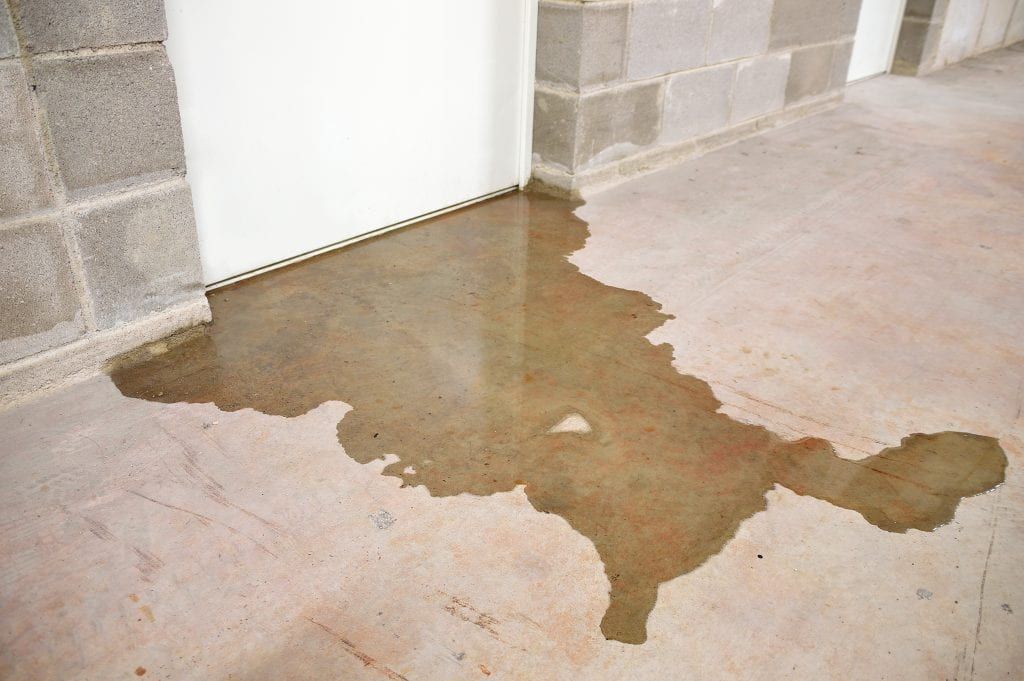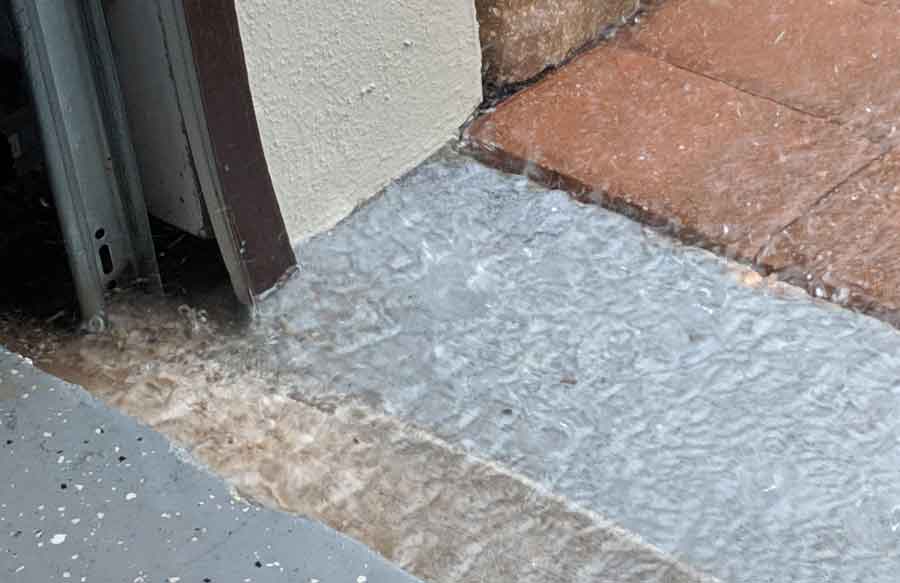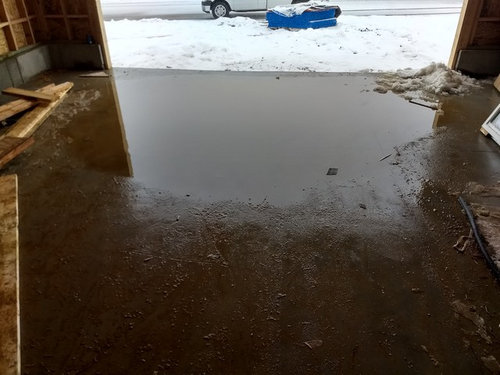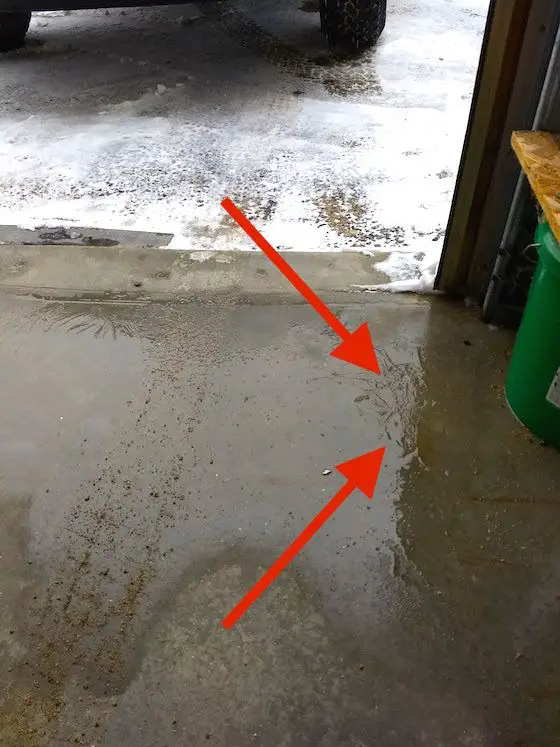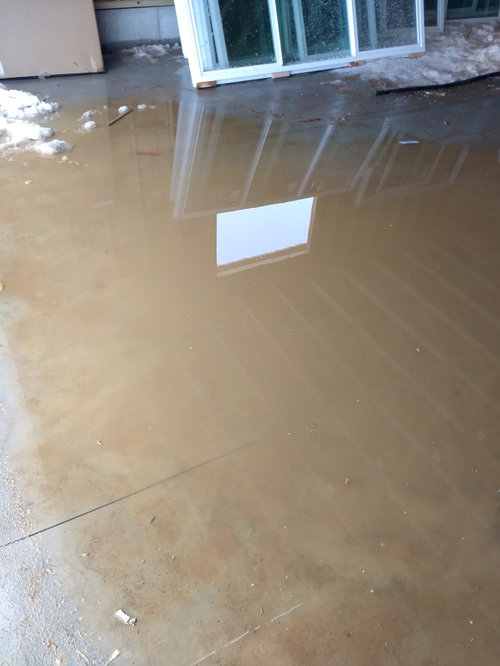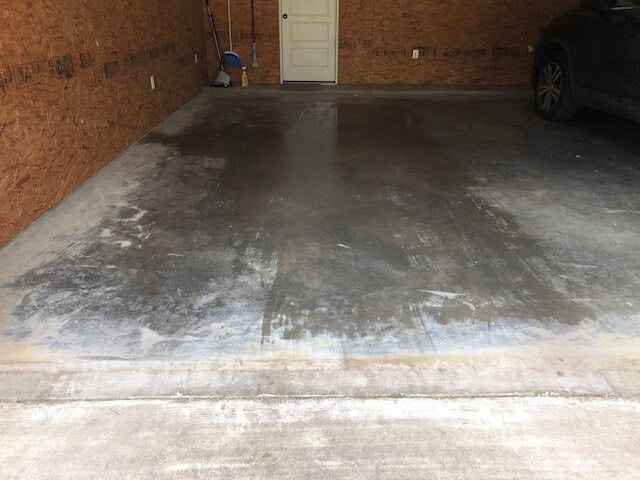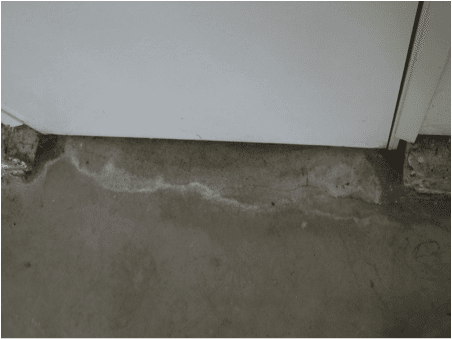Common Causes of Water on Garage Floor
So, you’ve noticed water on your garage floor, and you’re wondering what could be causing it. Well, fret not, because I’m here to shed some light on the common causes of water on garage floors. Let’s dive right in!
- Weather-Related Causes: a. Rainwater Seepage: Heavy rainfall can cause water to seep through cracks in the garage floor or gaps around doors and windows. b. Snowmelt: If you live in a snowy region, melting snow can make its way into your garage, leading to water accumulation.
- Plumbing Issues: a. Leaky Pipes: Faulty or damaged pipes within the garage can cause water to leak onto the floor. Keep an eye out for any signs of dripping or dampness near plumbing fixtures. b. Burst Water Heater: A ruptured water heater can result in a sudden water leak, leading to a wet garage floor.
- Condensation: a. Temperature Differences: Condensation occurs when warm, moist air comes into contact with cooler surfaces, such as the garage floor. This can happen during humid weather or due to inadequate insulation.
- Faulty Drainage: a. Poor Sloping: If your garage floor doesn’t have proper sloping, water can accumulate instead of draining away. This can lead to puddles forming on the floor. b. Clogged Drains: Blocked or clogged garage floor drains can prevent water from properly draining, causing it to pool on the floor.
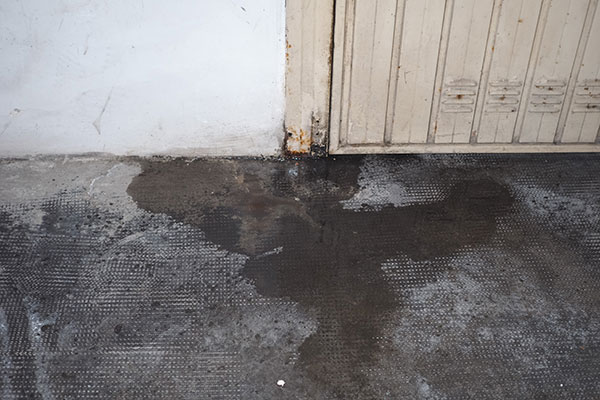
How to Identify Water Leakage in Your Garage
Now, let’s talk about how you can identify water leakage in your garage. It’s essential to detect the source of the water to address the issue effectively. So, let’s get started!
Visual Inspection: a. Check for Damp or Wet Spots: Look for areas on the floor that appear damp or wet, indicating water leakage. b. Examine the Walls and Ceiling: Inspect the walls and ceiling for signs of water stains, mold, or peeling paint, as these can indicate water leakage from above.
Odor Detection: a. Musty Smell: If you notice a musty or damp odor in your garage, it could be a sign of water leakage. Mold and mildew thrive in damp environments and can cause unpleasant odors.
Water Meter Test: a. Turn Off All Water Sources: Ensure that no water is being used in your home. Then, check your water meter. If it continues to run, it might indicate a hidden water leak.
Use a Moisture Meter: a. Invest in a moisture meter to detect moisture levels in different areas of your garage. High moisture readings can indicate water leakage.
Seek Professional Help: a. If you’re unable to locate the source of the water leakage, it’s best to consult a professional plumber or contractor who can use specialized equipment to identify hidden leaks.
Preventive Measures to Keep Your Garage Dry
Now that you know what causes water on your garage floor and how to identify leaks, let’s discuss some preventive measures to keep your garage dry. Prevention is key, so let’s jump right in!
Regular Inspection and Maintenance: a. Check for Cracks and Gaps: Inspect your garage floor, walls, and doors for any cracks or gaps that could allow water to seep in. Seal them promptly with appropriate materials. b. Maintain Proper Drainage: Ensure that your garage floor has proper sloping towards the drains to encourage water to flow out.
Improve Ventilation: a. Install Vents or Exhaust Fans: Proper ventilation helps reduce humidity levels in the garage, preventing condensation and the formation of moisture-related issues.
Waterproofing: a. Apply Waterproof Coatings: Consider applying a waterproof coating to your garage floor to create a barrier against water seepage. b. Weatherstripping: Install weatherstripping around doors and windows to prevent water from entering through gaps.
Clear Clutter: a. Remove any items or debris that may obstruct proper drainage or prevent air circulation. Clutter can lead to moisture buildup and potential water damage.
Regular Maintenance of Plumbing Fixtures: a. Inspect and repair any leaks in plumbing fixtures within the garage promptly. b. Drain Water Heaters: Regularly drain and flush your water heater to prevent leaks and ensure its longevity.
DIY Solutions for Dealing with Water on Your Garage Floor
Now, let’s explore some do-it-yourself solutions for dealing with water on your garage floor. These simple steps can help you manage minor water issues without the need for professional assistance. Let’s get started!
Use a Squeegee and Mop: a. After heavy rain or snowmelt, use a squeegee to push water towards the drains, then mop up any remaining moisture.
Install a Garage Floor Mat: a. Consider using a garage floor mat or absorbent mat in areas prone to water accumulation. These mats soak up water and help keep the floor dry.
Create a Channel: a. If water consistently accumulates in a particular area, use a small shovel to create a shallow channel that directs water towards the drains.
Patch and Seal Cracks: a. Repair minor cracks on the garage floor using epoxy or concrete patching materials. Afterward, seal the cracks to prevent further water penetration.
Install a Dehumidifier: a. If your garage has high humidity levels, consider using a dehumidifier to remove excess moisture from the air, reducing the chances of condensation.
When to Seek Professional Help for Garage Water Issues
Sometimes, DIY solutions may not suffice, and it becomes necessary to seek professional help for your garage water issues. Let’s explore when it’s time to call in the experts.
Persistent Water Leakage: a. If you’ve tried DIY solutions, but water continues to accumulate on your garage floor, it’s best to consult a professional plumber or contractor. They can identify the root cause and provide a suitable solution.
Extensive Water Damage: a. If you notice significant water damage, such as structural issues, mold growth, or electrical hazards, it’s crucial to contact professionals who specialize in water damage restoration.
Hidden Leaks: a. If you suspect hidden leaks within the walls, ceiling, or underground pipes, professionals can use advanced equipment, such as thermal imaging cameras or leak detection tools, to pinpoint the source of the leak.
Complex Repairs: a. Certain repairs, such as fixing burst pipes or releveling a sloping garage floor, may require specialized knowledge and expertise that professionals can provide.
Safety Concerns: a. If you’re unsure about the safety of diagnosing or fixing water-related issues in your garage, it’s always better to prioritize your safety and seek professional assistance.
Garage Floor Ponding- How to get your builder to fix mistakes?
Should You Put A Dehumidifier In Your Garage? (Condensation
Puddle problem The Garage Journal
water in garage after rain – DoItYourself.com Community Forums
Water running or draining into the garage – Buyers Ask
How to Slope Garage Floor So Water Runs Off It » The Money Pit
Garage Pooling u2014 CF Construction Services
Related Posts:
